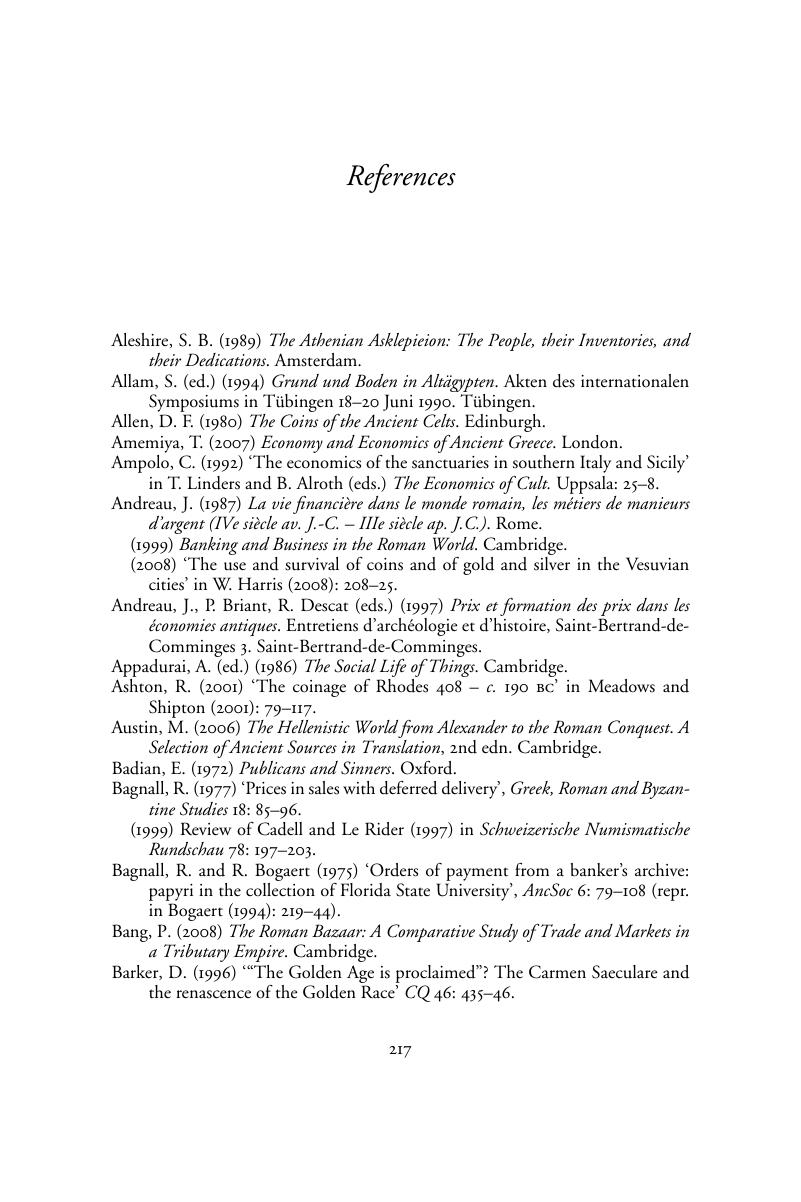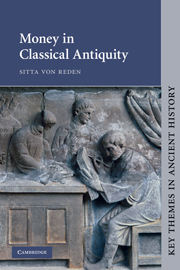Book contents
- Frontmatter
- Contents
- List of figures and tables
- List of maps
- Preface and acknowledgements
- Greek and Roman monetary system and coin denominations
- List of abbreviations
- Maps
- Introduction
- 1 Monetization: issues
- 2 Monetization: cases
- 3 Monetary networks
- 4 Cash and credit
- 5 Prices and price formation: issues
- 6 Prices and price formation: a case study
- 7 Sacred finance
- Epilogue: monetary culture
- Appendices
- Glossary
- Bibliographical essay
- References
- Index
- References
References
Published online by Cambridge University Press: 05 August 2012
- Frontmatter
- Contents
- List of figures and tables
- List of maps
- Preface and acknowledgements
- Greek and Roman monetary system and coin denominations
- List of abbreviations
- Maps
- Introduction
- 1 Monetization: issues
- 2 Monetization: cases
- 3 Monetary networks
- 4 Cash and credit
- 5 Prices and price formation: issues
- 6 Prices and price formation: a case study
- 7 Sacred finance
- Epilogue: monetary culture
- Appendices
- Glossary
- Bibliographical essay
- References
- Index
- References
Summary

- Type
- Chapter
- Information
- Money in Classical Antiquity , pp. 217 - 233Publisher: Cambridge University PressPrint publication year: 2010

